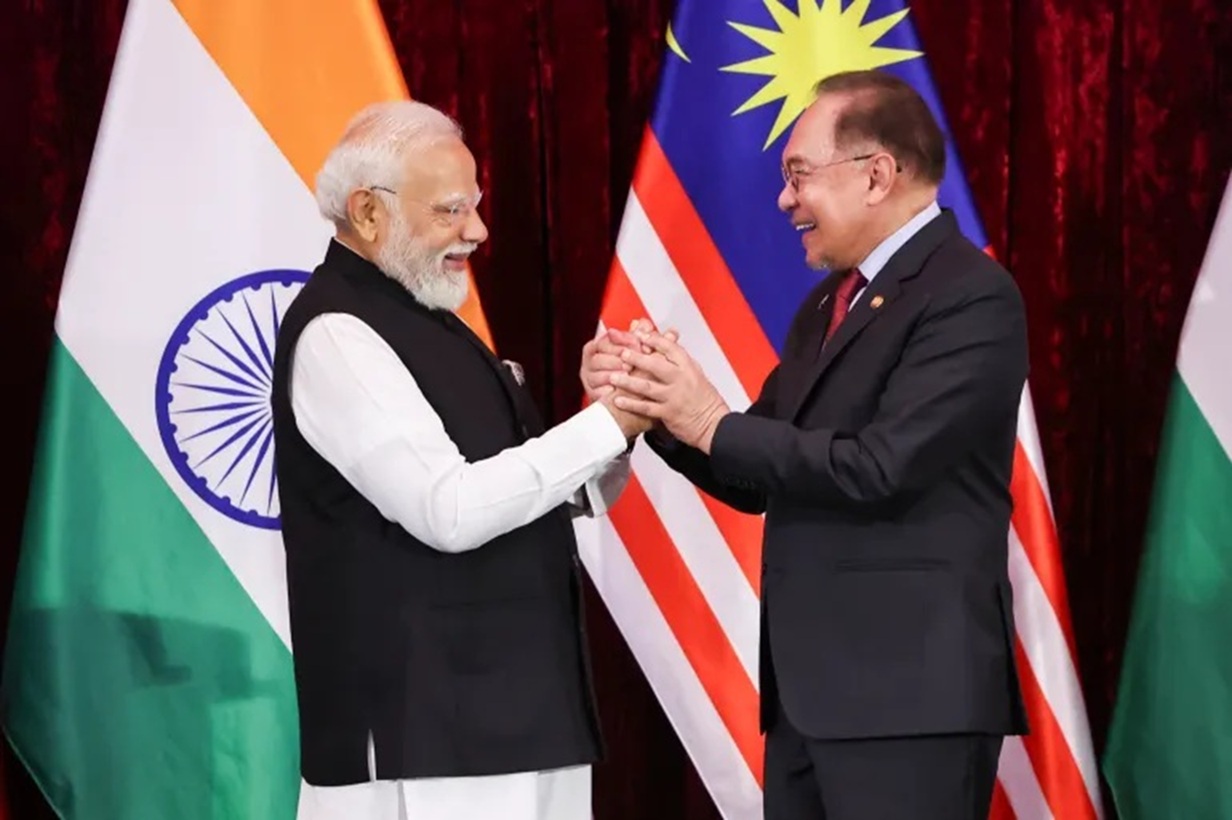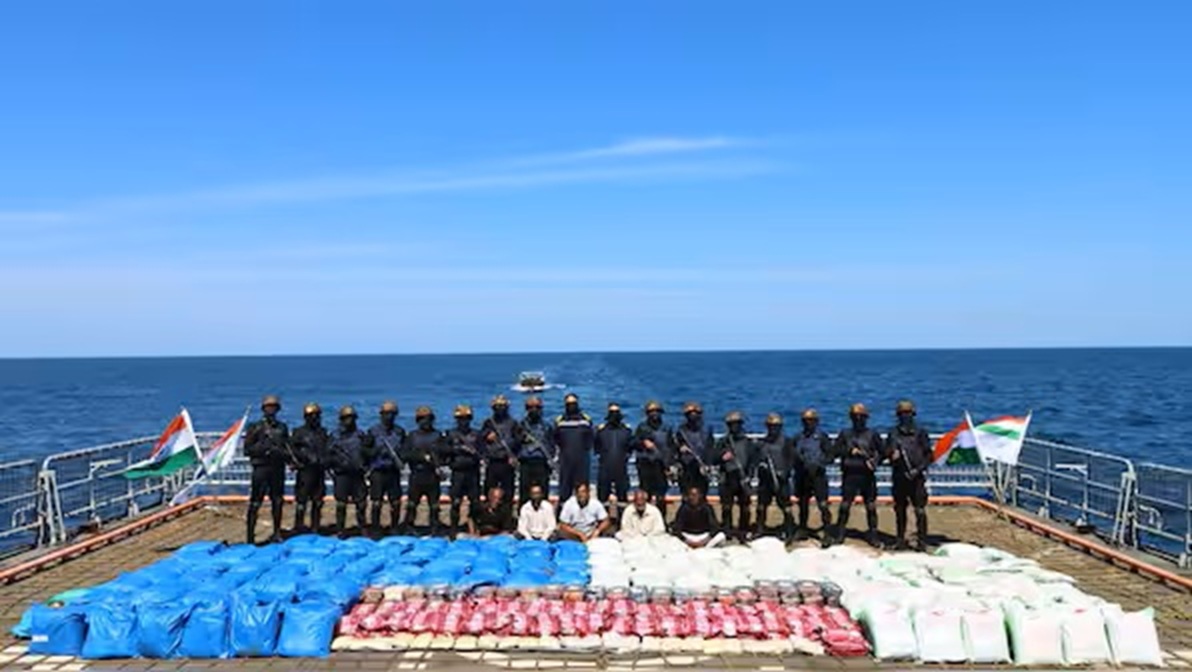Geopolitics worldwide is currently characterised by increasing unpredictability and volatility. Several factors contribute to this, including shifting power dynamics, rising protectionism and escalating tensions between major global powers. These factors are creating a challenge to India’s foreign policy.
India’s foreign policy, in the post-independence era, has been guided by principles like non-alignment, anti-colonialism, and a commitment to world peace, while attempting to prioritise its national interests and economic development. Initially, the policy rightly focused on safeguarding sovereignty and territorial integrity, promoting regional stability, and fostering cooperation with neighbouring countries. Over time, India’s foreign policy evolved, becoming more pragmatic, broad-based, and strategically focused on national interests, with economic diplomacy playing a central role.
However, many important events like China’s Galwan Valley Intrusions, Russia-Ukraine Conflict, Regime Change in Bangladesh, Israel-Hamas Conflict (now encompassing Iran and middle east countries), recent Indo-Pakistan clashes and Trump’s ongoing unpredictable flip-flops on USA’s foreign and trade policies, all have created a global turmoil, including in India.
India has been recalibrating its foreign policy based on the geopolitical dynamics. prioritising its national interests. The Indian foreign policy has also been showing a strategic independence streak, boldness, and aspirations for occupying its rightful place on the geopolitical chessboard. But the impact of the events mentioned above, which resulted in some unforeseen outcomes, complicates the Foreign Policy game for India. It would be appropriate to examine these effects country-wise.
India-Pakistan: The Pahalgam attack severely escalated tensions between India and Pakistan, leading to a significant deterioration in their already complex relationship. India responded with strong measures, including suspending the Indus Waters Treaty, initiating military surgical strikes, and imposing trade restrictions. Pakistan tried retaliation with similar measures, including airspace restrictions and trade suspensions, but in the end of it had to eat humble pie. But it’s not the time for India to relax, as Pakistan is raising its head again, and is being tacitly supported by Bangladesh, China, Turkey and the USA. Signs are also emerging that Pakistan will not back down from its sponsored terrorism activities, and will continue with its 1000 cuts policy. Therefore, India needs to keep a close watch on Pakistan, persuade the global community to put Pakistan back on the FATF list and calibrate its policy towards Pakistan, to keep it in check.
India-China: Undeniably, following the Pahalgam attack, India-China relations have become more strained, with China expressing concerns about India’s response and potentially using the situation to its advantage. China has backed Pakistan’s call for an investigation into the attack, while also highlighting the potential for a two-front military threat from Pakistan and China. This has led to India needing to reassess its military and diplomatic resources, potentially impacting its Indo-Pacific ambitions. China has also enhanced its military/diplomatic and financial support to Pakistan, threatened India with retaliation by controlling the river Brahmaputra, and restricted the export of fertilisers and rare earth magnets. India should, thus, never be under the wrong impression that China will be its friend. Rather, the Pahalgam attack and its aftermath have created a more challenging and complex environment for India-China relations, with a greater emphasis on security concerns and potential for strategic realignment in the region. India should, therefore, demask China’s duplicity and tailor its own China policy to give a befitting reply and minimise the impacts of China’s unfriendly moves on all fronts, while maintaining dialogue and trade relations with it. In addition, India must recalibrate its policy to safeguard its interests in the Indo-Pacific region.
India-Bangladesh: India-Bangladesh relations are currently at a crossroads following the recent political changes in Bangladesh. The departure of Sheikh Hasina’s government has introduced new complexities and uncertainties into the bilateral relationship. While past decades saw a strong partnership, the current situation created by new leadership has raised concerns about the future of cooperation and the development of India’s Northeast region. Bangladesh’s deepening relations with China, Pakistan, and Turkey, and its moves related to the Chicken’s Neck region in northeast India, are matters of grave concern for India. India’s policy towards Bangladesh needs to be tailored to minimise the impacts of Bangladesh’s attempts to destabilise India, as well as to bring Bangladesh to its senses.
India-Turkiye: The recent hostilities between India and Pakistan not only stirred longstanding regional anxieties but also exposed the real face of Turkiye for India. With Türkiye’s pro-Pakistan moves. India-Türkiye relations have entered one of their most fragile phases in recent memory.
At the heart of the diplomatic chill lies Ankara’s response, or perceived lack of balance, in addressing the attack and India’s retaliation. New Delhi expects further understanding from Türkiye on the Pakistan-sponsored terror attacks.
The Indian government and the Indian citizens responded swiftly, launching grassroots campaigns to boycott Turkish products, services and tourism. But Turkiye is important for India because of its strategic location, regional influence, and common interests in global forums. Turkiye is also part of the International North-South Transport Corridor (INSTC), essential for boosting India’s trade with Europe and Central Asia. Thus, India needs to recalibrate its Turkiye policy, keeping in mind the above sensitivities.
India-USA: India-USA relations have recently taken an unpalatable turn due to the vacillating policies of President Trump. Trump’s impulsive policies have affected India’s interests in many areas, like trade, investment, immigration, technological cooperation, Asian balance of power, counterterrorism, and global governance. Trump’s growing closeness to terror-sponsoring state Pakistan is also a matter of great concern for India. There is no doubt that India needs to continue engaging with the Trump administration and other stakeholders in the United States in all the above areas. While doing that, India needs to remind the USA that India’s rise is in the SA’s and Indo-Pacific’s interests, and it will be more difficult for India to sustain its efforts if the USA keeps imposing its new political views and impulses on India.
India-UK: Though the India-UK bilateral relationship has been generally strong, rising anti-India activities in the UK are a matter of concern for India. Further, the USA’s influence on the UK, while dealing with India, exacerbates the concerns. However, despite multiple challenges, the India-UK relationship has shown an upward trajectory, exemplified by the conclusion of a Comprehensive Strategic Partnership agreement, plans for signing a new joint cyber security agreement and an FTA. India and the UK also plan to hold the first Strategic Tech Dialogue, a ministerial-level summit on emerging technologies. India and the UK have also agreed to strengthen their cooperation in the maritime domain as the UK will join India’s Indo-Pacific Oceans Initiative and become a major partner on maritime security issues in Southeast Asia. The UK was also one of the few countries which condemned the Pahalgam attack and upheld India’s right to defend itself against terrorism. This positive momentum needs to be nurtured, without allowing the USA to interfere in Indo-UK bilateral relations.
India- Europe: The European Union, in general, failed to appreciate the fact that the recent terrorist attack in Pahalgam was not just another act of violence; it was a chilling reminder of the brutal threats that plague the Indian subcontinent. It is also disappointing to note that the response from the European Union (EU), as a bloc, was lukewarm and strategically cautious. Though support came in from some individual European nations, the EU’s outwardly condemnatory reaction was carefully calibrated to avoid uncomfortable truths.
The above reaction has shown that while European leaders expect solidarity in response to attacks on their soil, their reluctance to address security threats in India, with similar clarity, reveals an enduring inconsistency. The same inconsistencies are observed in EU members’ dealings with India in other spheres, like trade, technology, etc. India needs to bring these inconsistencies to the EU’s notice and impress upon the EU that good international relations are a two-way traffic and calibrate its approach to the EU accordingly.
India-Russia: The Russia-India relationship has always been unique. With their converging geopolitical interests and low bilateral differences, the two countries have been able to forge a long-standing relationship. Kremlin’s response to Pakistan-funded terrorist attacks in Pahalgam, by reiterating its readiness to step up anti-terrorism cooperation with India, was certainly comforting. In the fight against terrorism, but at the same time, that response also signalled a subtle shift in Russia’s approach to the Indo-Pak equation. This shift can be attributed to the growing Russia-West rift and emerging regional geopolitical realignments, which might have enhanced Pakistan’s importance in Russia’s strategic outlook. India needs to take a resolute note of this fact and calibrate in policy towards Russia in a manner that will strengthen the time-tested friendship and cooperation.
India-Japan: India and Japan, both shining examples of long-standing democracies and strong supporters of a free and open Indo-Pacific, have found increasing alignment in the midst of the dynamics of great power politics. The Indo-Pacific has become the epicentre of strategic contestation due to the assertiveness of China and the USA’s changing response to find a common ground in Indo-Japan relations. They also share concerns over the world’s overdependence on China for manufacturing, the safety and security of the sea lanes of communication, and the erosion of rules-based order in the Indo-Pacific Region. The Quadrilateral Security Dialogue (Quad), with Australia and the US, represents a key platform where Indo-Japanese strategic interests converge. In addition, both countries have taken concerted steps to enhance defence, social and trade ties. But China finds Japan at loggerheads with it. Thus, India would need to keep China in mind while nurturing its relationship with Japan.
India and ASEAN: The India-ASEAN partnership has become a cornerstone of regional architecture, underpinned by a shared vision of peace, prosperity, and inclusivity in Asia. India’s Act East policy has reaffirmed the centrality of ASEAN in its regional approach. External Affairs Minister S. Jaishankar had also acknowledged ASEAN’s importance for India by stating that its centrality remains the bedrock of India’s engagement in the region, and India’s ASEAN partnership is grounded in respect for the rules-based order and mutual prosperity. However, India and ASEAN have differences with FTA and ASEAN acts as a gateway for Chinese goods to India. India needs to work towards sorting out these differences and strengthening Indo-ASEAN relations.
In Summary, it could be said that India is faced with conflicting diplomatic embroglios, and is currently in a very delicate and unenviable geopolitical situation. That situation would warrant an inevitable diplomatic tightrope walk by India. It would, thus, need to be both innovative and creative in its foreign policy approach. Words of Dr S Jayshankar (Hon. External Affairs Minister) sum it well, when he said: “This is a time for us to engage America, manage China, cultivate Europe, reassure Russia, bring Japan into play, draw neighbors in, extend the neighborhood and expand traditional constituencies of support”- an advice that needs a vigorous implementation.
Jai Hind.
Title image courtesy: https://decodingworldaffairs.com/
Disclaimer: The views and opinions expressed by the author do not necessarily reflect the views of the Government of India and Defence Research and Studies







